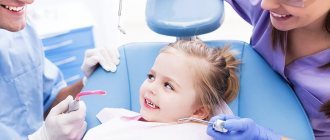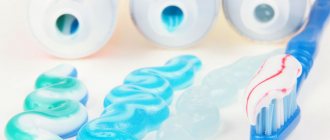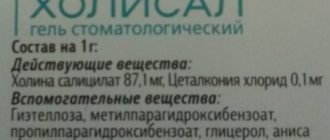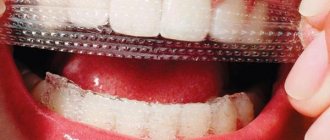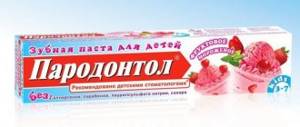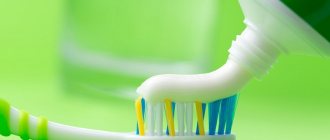Careful oral hygiene and regular visits to the dental clinic are the basis for dental health.
However, there is one more point that directly affects the condition of the dentition and gums - the body receives a sufficient amount of vitamins.
It happens that even a properly balanced diet is not able to provide the totality of useful substances that are required to protect the gums and teeth from various diseases.
Specially developed vitamin and mineral complexes designed to nourish teeth and gums will come to the rescue.
Scroll
Taking sufficient amounts of vitamins and minerals is the basis for the absence of problems, both in the whole body and in the oral cavity.
A deficiency of any component leads to caries, loose teeth, and bleeding gums.
The lack of a specific element is indicated by certain unpleasant sensations that occur in the oral cavity. It is important to notice these changes promptly and take measures to solve the problem.
For a quick overview of the vitamins and minerals needed for healthy teeth and gums, watch the following video:
A
Carotene or retinol, as vitamin A is also called, takes an active part in metabolic processes. This element strengthens the walls of the capillaries, due to which the gums and mucous membrane of the oral cavity are protected from damage.
Evidence of a lack of retinol in the body is the occurrence of the following symptoms:
- redness and inflammation of the gums;
- excessively prolonged healing of wounds on the mucosal surface;
- the appearance of roughness on tooth enamel;
- development of tooth mobility.
The highest carotene content is observed in carrots, as well as other orange-colored vegetables and fruits.
Cod and beef liver, parsley, rose hips and green onions are also leaders in retinol content.
In addition, to normalize the amount of this element in the body, it is important to eat the following foods: butter, fermented milk products, chicken eggs, tomatoes.
The minimum acceptable intake of vitamin A for adults is 800-1000 mcg per day.
B
B vitamins are responsible for the aesthetics of the oral cavity. They help normalize microflora and the condition of the oral mucosa.
The use of these elements minimizes the risk of developing periodontitis and gingivitis, and also helps get rid of these diseases.
Group B contains components of various compositions, the lack of each of which causes certain problems:
- vitamin B12 – dry mouth, changes in taste and redness of the tongue;
- pyroxidin or B6 – loose teeth;
- B1 or thiamine - incessant thirst, pain and burning sensation in the tongue, impaired taste;
- riboflavin (B2) – inflammation of the oral mucosa, the appearance of ulcers on the tongue, sticking on the corners of the lips.
The daily dose of each B vitamin is 2 mg . Products rich in this element are cereals, nuts, legumes, milk, meat, chicken eggs, fish.
C
Ascorbic acid provides protection for the entire body and oral cavity from various infections. This element helps strengthen bone tissue and tooth ligaments, and strengthens gums.
Vitamin C deficiency in the oral cavity causes the following problems:
- bleeding gums;
- the appearance of ulcers on the oral mucosa;
- tooth mobility;
- inability to resist infections that penetrate the oral cavity.
Products rich in ascorbic acid are rose hips, citrus fruits, sea buckthorn, black currants, dill, cabbage and cauliflower.
We invite you to familiarize yourself with the ratings of whitening toothpastes among dentists from our next article. And here you will learn everything about canine extensions: indications, contraindications, cost, pros and cons of the procedure.
It is worth remembering that vitamin C cannot accumulate in the body, so it must be consumed daily.
The minimum daily dose of ascorbic acid for an adult is 90 mg.
D
Sufficient intake of vitamin D is the basis for normal dental development. This element helps strengthen enamel and proper absorption of calcium and phosphorus. Thanks to it, the teeth are firmly held in the right places and are not prone to loosening.
Insufficient consumption of this component leads to weakening of musculoskeletal tissue, brittle teeth, caries and improper formation of tooth germs.
Symptoms of vitamin D deficiency in an adult:
- dry mouth;
- the appearance of a strong metallic taste;
- development of caries.
The minimum daily requirement of an adult body for element D is 2.5 mcg.
The maximum content of this component is found in the following products: fish and fish oil, liver, chicken eggs.
E
Due to the presence of a sufficient amount of vitamin E in the oral cavity, the healing process of existing small wounds is activated.
Vitamin E is responsible for accelerating cell regeneration and maintaining the tone of the oral mucosa. With its deficiency, inflammation of the gums and mucous membranes develops, and sensitivity to mechanical damage increases.
Tocopherol (vitamin E) deficiency can be detected by the following signs:
- feeling of dry mouth;
- the appearance of ulcers on the mucous membrane;
- increased gum sensitivity.
The best sources of element E include the following products: sprouted wheat grains, corn, vegetable oils, legumes, nuts.
The recommended intake of the component is 15 mg per day.
PP
A deficiency of vitamin PP in the body negatively affects the condition of the oral cavity: diseases such as stomatitis, gingivitis and other pathologies develop.
The deficiency of the substance is simply determined: the tongue becomes red and covered with a brown coating in the central part, there is an unpleasant odor from the mouth and the appearance of cracks in the corners of the lips.
The optimal content of the PP element is observed in the following products: cereals, legumes, yeast, beef liver, meat products. The minimum daily intake of the component is at least 20 mg per day.
K
The key role of vitamin K for the oral cavity is to protect the gums from bleeding and loose tissue. This element affects the general blood circulation in the body, so its deficiency leads to impaired blood clotting, and, accordingly, to increased bleeding of the gums.
Sources of vitamin K are most vegetables: tomatoes, potatoes, corn, carrots, green peas.
In addition, this element is found in spinach, soy, rose hips and various types of meat. The daily intake ranges from 90 to 120 mcg.
Consequences of periodontal disease
Periodontal disease can lead to the following consequences:
- intoxication of the body with purulent secretions;
- periodontitis;
- periostitis;
- osteomyelitis of the jaw bones;
- retrograde pulpitis;
- ulcerative gingivitis;
- lymphadenitis;
- increasing the load on healthy teeth;
- impossibility of prosthetics;
- the occurrence of stomach problems due to insufficient chewing of food and the presence of bacteria in the oral cavity.
The process of treating the disease is quite long and not very pleasant.
Correct comprehensive treatment, which is prescribed by a specialist depending on the extent of the inflammation, will help speed it up. The most effective method is to inject injections into the inflamed areas of the gums. This method is quite simple and relatively painless.
It is worth remembering that regular and high-quality oral hygiene can almost always prevent the occurrence of periodontal disease. You should not neglect it during the treatment process, it will significantly speed up your recovery time.
Ready-made complexes
In addition to getting vitamins from food, in some cases it is worth considering taking various mineral complexes. Often they contain a whole range of useful elements that specifically affect a person’s teeth and gums.
It should be understood that only a dentist can prescribe a suitable vitamin complex after a thorough analysis of the patient’s diet and the condition of his oral cavity. Taking an excess amount of mineral elements can harm the human body no less than a deficiency.
Alphabet Classic
Multivitamin complex Alphabet Classic contains the maximum amount of useful substances: 13 vitamins and 10 minerals.
Thanks to the well-balanced composition and division of tablets into different types, all beneficial substances are actively absorbed by the body. The drug contains three types of tablets:
- The main active ingredients are calcium and vitamin D3. It is in this form that they are best absorbed by the body. The task of these elements is to strengthen tooth enamel.
- A set of useful components in addition to antioxidants aimed at maintaining immunity and protecting against all kinds of oral infections.
- Iron and elements that promote its absorption.
Taking all three types of tablets provides the greatest benefits for improving the health of your gums and teeth. For maximum effect, it is recommended to take the complex daily for a month.
The cost of the drug ranges from 230 to 400 rubles.
Asepta
The Asepta vitamin and mineral complex is designed to restore the condition of dental and gum tissues. The composition of the drug includes:
- vitamin A;
- elements of group B (folic acid, nicotinic acid, pyroxidine)
- ascorbic acid;
- green tea extract, which helps accelerate healing processes;
- coral calcium to reduce gum bleeding and accelerate regeneration processes.
We will tell you when the use of Curaprox mono-beam toothbrushes is indicated and how much you can buy them for. By clicking on the following link: https://dentist-pro.ru/krasota-i-uxod/sredstva/zubnye-pasty/obzor-marki-crest.html, you will learn what are the features of using Crest paste.
And here you can read reviews about Aquajet irrigators.
Regular intake of the Asepta mineral complex helps reduce bleeding gums, heal them, and prevent inflammation.
The duration of the course is 6 weeks. At this time, it is recommended to take 1 tablet of the substance daily. The cost of a package of the drug is approximately 400 rubles.
Vitrum Calcium
This complex contains a combination of a special form of calcium, as well as vitamin D3. This allows the elements to be absorbed as quickly as possible.
The main purpose of taking the drug is to compensate for calcium deficiency in the body. As a result, as a result of taking the tablets, tooth enamel is strengthened and their structure is improved.
In addition to calcium, the drug contains numerous B vitamins, elements E and K, as well as magnesium and phosphorus.
The drug is taken 1-2 tablets per day for the time recommended by the dentist to improve the condition of the oral cavity. The cost of the complex ranges from 400 rubles for 30 tablets, to 900 for 100 units.
Dento Vitus
A properly balanced vitamin and mineral complex is designed to strengthen the structure of teeth and maintain their attractive appearance.
It contains the following components: vitamins A and D3, pyridoxine, ascorbic acid, elements K and E.
The complex also contains elements involved in the restoration of tooth enamel: calcium, phosphorus, magnesium, fluorine and silicon.
In addition to improving the condition of dental tissue, the drug helps strengthen weakened gums, strengthens capillaries and restores blood circulation.
You need to take the complex daily, one effervescent tablet dissolved in a glass of water. The recommended duration of the course to eliminate existing problems is 1 month.
The cost of the drug is quite high - 3000 rubles per package.
Calcium Osteoporosis
The nutritional supplement Calcium Osteoporosis contains a rich list of components, including: folic and ascorbic acids, calcium, zinc, manganese, vitamin B6.
Regular use of the complex has a general strengthening effect, leads to the prevention of gum inflammation, the prevention of periodontal diseases, and the elimination of fragility of dental tissue.
The course of taking the drug is a month, during which it is advisable to take 1-2 tablets per day. The price of the package starts from 400 rubles for 40 capsules.
Kaltsinova
The vitamin complex includes a set of elements that control the condition of bone tissue, teeth and enamel.
The active ingredients of the drug are ascorbic acid, retinol, vitamin D3, phosphorus and calcium. A course of taking the drug helps strengthen tooth enamel and improve the condition of the gums.
The tablets are colored in 3 colors and contain different flavors: raspberry, pineapple, kiwi and blueberry.
The price of the drug is quite low - about 150 rubles per package containing 27 tablets. It is recommended to take 5 tablets daily. The course of treatment is 3 weeks.
Calcium-D3 Nycomed
The main purpose of the drug is to regulate the required level of calcium and phosphorus in the body. Regular intake of tablets helps strengthen tooth enamel.
The vitamin complex is produced in the form of chewable tablets. The course of treatment is a month. You need to take 1-2 tablets daily. The cost of packaging the drug is about 200 rubles for 20 tablets and 550-600 for 100 pieces.
Centrum. From A to zinc
The multivitamin complex includes many useful elements that strengthen blood vessels and reduce the risk of developing oral diseases. It also strengthens the structure of bone tissue.
The course of treatment with the drug is 1 month. It is recommended to take 1 tablet per day. You can buy a package of the drug for 500 rubles for 30 tablets.
Rating of the best vitamins for teeth
| Nomination | place | Name of product | price |
| The best adult vitamins for teeth | 1 | Asepta | 183 ₽ |
| 2 | Doppelhertz Active Calcium + D3 | 364 ₽ | |
| 3 | Osteocea | 428 ₽ | |
| 4 | Vitrum Osteomag | 411 ₽ | |
| 5 | Calcium D3 Nycomed Forte | 601 ₽ | |
| 6 | Evalar Calcium Chelate | 200 ₽ | |
| The best children's vitamins for teeth | 1 | Kaltsinova | 264 ₽ |
| 2 | Alphabet Our Baby | 421 ₽ | |
| 3 | Vitrum Kids | 480 ₽ | |
| 4 | Pikovit Unique 3+ | 93 ₽ | |
| 5 | Multi-Tabs Baby | 441 ₽ | |
| 6 | Complivit Active chewable | 174 ₽ |
Calcium
In addition to various vitamins, an important component of the health of tooth enamel is calcium. This element strengthens the enamel, prevents the occurrence of caries, looseness and brittleness of teeth.
The minimum daily intake of calcium is 800 mg. To replenish the required amount of this component in the body, you should take calcium-containing medications or eat certain foods. These include: dairy and seafood, chicken eggs, vegetables and legumes, nuts.
Possible complications from injections
The treatment process is not always easy and quick, and there is a risk of complications. If problems arise after the procedure, you must apply Solcoseryl ointment and consult a doctor.
If pathogenic microorganisms enter the injection wound, a small lump or lump may occur. It is also possible that the patient’s temperature may increase.
The injection may cause your cheek to swell when the facial nerve is hit. This will cause pain and stiffness in the facial muscles.
Phosphorus
Phosphorus is a basic element of human bones and teeth. Its presence in teeth helps strengthen the enamel and preserve its whiteness.
The daily requirement of phosphorus for the adult body is 1000-1500 mg. Patients suffering from periodontal disease and the development of caries need to increase it.
Phosphorus entering the body through food is absorbed by 70%. Its maximum amount is contained in the following products: meat, dairy products, fish and seafood, cereals, nuts.
Features of injection treatment
Effective fight against the disease can only occur in a comprehensive manner, therefore the following types of drugs are prescribed:
- vitamins for teeth and gums containing zinc, iron and copper;
- immunomodulators;
- drugs that saturate the gums with oxygen - Lidaza;
- glucose;
- weak solution of hydrogen peroxide.
For the treatment of the oral cavity, the following injections are distinguished:
- antibacterial drugs;
- antitoxic serums;
- biogenic stimulants;
- sclerosing therapy;
- Ribonuclease and Methyluracil.
Antibacterial drugs
The basic basis of periodontal disease treatment involves the administration of antibiotics. They are more effective in injections. The most commonly used drugs are Metronidazole and Doxycycline. When combined with Chlorhexidine, treatment becomes more effective. The course of such treatment takes place in just 5–7 days.
After the injection, inflammation goes away, pain decreases, and bleeding disappears. However, the use of antibiotics leads to severe tooth mobility due to the release of large amounts of toxins, leading to tissue death.
Antibiotics are used for moderate and severe disease processes. Use in milder forms can lead to complications: severe pain and increased sensitivity to the active substance of the drug.
Antitoxic serums
Such drugs lead to the complete destruction of pathogens in the oral cavity. The serum contains specific antibodies that eliminate exotoxins. Injections with this medicine increase immunity and have an anti-inflammatory effect. Treatment takes a record amount of time.
The dosage is selected individually, depending on age and weight. It is worth considering that these drugs can cause allergies and adverse reactions in the form of:
- anaphylactic shock;
- arthralgia;
- lymphadenitis;
- temperature rise.
Biogenic stimulants
In combination with antibiotics and anti-inflammatory drugs, stimulating drugs - aloe extract and FIBS - are necessarily prescribed. These medications regulate the metabolic process.
Aloe extract for periodontal disease
- Aloe extract is prescribed for severe inflammation. Use it for a month and a half, every other day.
- Injections of Filatov's biogenic stimulator are made into the upper and lower jaws, up to 30 injections are provided. The drug is contraindicated for high blood pressure and intestinal disorders.
- The drugs are prescribed in combination with agents of nonspecific action - Metacin, Pentoxyl, Biosed. Thanks to this, the treatment period is significantly reduced.
Sclerosing therapy
During this therapy, injections are given with chromium alum and quinine urethane preparations, which relieve looseness and swelling of the gums. A full course of treatment strengthens the mucosa and promotes the formation of new tissue. This therapy is contraindicated in people with gingivitis.
A deeper therapy process involves giving injections into the gum papillae, using a 40% glucose solution. The amount of solution is adjusted depending on the degree of swelling. The course of treatment consists of eight injections with an interval of two to three days between them.
Ribonuclease and Methyluracil for periodontal disease
Such drugs are prescribed additionally for a more effective treatment process. Ribonuclease is an enzymatic substance that promotes tissue repair and blood vessel growth. And Methyluracil is a drug that has an anabolic effect - stimulating the process of growth and restoration of tissue cells.
Reviews
An increasing number of people are resorting to the use of various vitamin and mineral complexes to prevent periodontal diseases and restore the health of the gums and oral mucosa. Often the impressions from their reception are positive.
We invite people who have used any vitamin and mineral complexes for teeth to leave their feedback on their effectiveness in the comments section of this article.
If you find an error, please select a piece of text and press Ctrl+Enter.
Treatment of periodontal disease with injections: what kind of injections are used?
Periodontal disease is a disease of the oral cavity that is caused by exposure to pathogenic microorganisms. The affected area is the periodontium - the tissue surrounding the tooth. During the course of the disease, the gums and alveolar part of the jaw atrophy.
The initial signs of the disease are inflammation and bleeding of tissues. And this is already enough to contact a specialist, because periodontal disease is very dangerous and threatens a person with further health complications.
Injections into the gums are an important method of treating periodontal disease.
Clinical researches
Clinical studies have proven that regular use of professional toothpaste ASEPTA REMINERALIZATION improved the condition of the enamel by 64% and reduced tooth sensitivity by 66% after just 4 weeks.
Sources:
- Report on the determination/confirmation of the preventive properties of personal oral hygiene products “ASEPTA PLUS” Remineralization doctor-researcher A.A. Leontyev, head Department of Preventive Dentistry, Doctor of Medical Sciences, Professor S.B. Ulitovsky First St. Petersburg State Medical University named after. acad. I.P. Pavlova, Department of Preventive Dentistry
- Clinical experience in using the Asepta series of products Fuchs Elena Ivanovna Assistant of the Department of Therapeutic and Pediatric Dentistry State Budgetary Educational Institution of Higher Professional Education Ryazan State Medical University named after Academician I.P. Pavlova of the Ministry of Health and Social Development of the Russian Federation (GBOU VPO RyazSMU Ministry of Health and Social Development of Russia)
- The use of new anti-inflammatory drugs in the complex of therapeutic and preventive measures for periodontal diseases (E.D. Kuchumova, A.A. Leontyev, O.V. Kalinina, L.Yu. Orekhova, S.B. Ulitovsky) E.D. Kuchumova, Ph.D., Associate Professor, A.A. Leontyev, dentist, O.V. Kalinina, dentist, L.Yu. Orekhova, Doctor of Medical Sciences, Professor, Head of Department, S.B. Ulitovsky, Doctor of Medical Sciences, Prof. Department of Therapeutic Dentistry of St. Petersburg State Medical University named after. acad. I.P. Pavlova
Contraindications to injections for periodontal disease
For effective treatment, the doctor prescribes a set of drugs, each of which has contraindications for use. Therefore, it is important to undergo examination and identify possible diseases before starting therapy. For example, in case of autoimmune diseases (diabetes mellitus, glomerulonephritis, multiple sclerosis), immunomodulators are strictly prohibited. Cardiac decompensation and pulmonary failure are contraindications to the use of anti-inflammatory drugs.
Treatment is not started in the presence of foci of inflammation in the body or in the acute stage of any disease. During pregnancy and lactation, injections are prescribed with caution; if possible, opt for non-drug treatment (massage, rinsing).
Osteocea
Hygienic cleaning of the oral cavity performed by a professional dentist is the key to good dental health. This procedure minimizes the risks of caries, gingivitis, and periodontitis. In addition, one should not allow a deficiency of vitamins and microelements in the body. Customers today trust Vitabiotics and its products. The main thing is that Osteokea has no side effects. The drug is taken twice a day, one tablet. The product quickly replenishes the lack of nutrients in the body, strengthens bone tissue, and improves the condition of the oral mucosa. The drug saturates the body with calcium, zinc, magnesium, and vitamin D.
Plasmolifting in the treatment of periodontal disease
In dentistry, this disease is also treated with blood plasma injections. This method is quite young, but is already gaining popularity. It is distinguished by its safety and hypoallergenicity.
The essence of this method is that the required amount of blood is taken from a person and the plasma is separated from other components using a centrifuge. It is this plasma that is injected in the form of injections into the affected areas of tissue.
This treatment method has a number of positive properties:
- faster wound healing;
- elimination of bleeding;
- elimination of unpleasant odor;
- pain relief.
Plasmolifting is strictly contraindicated for HIV infections, Hepatitis and infectious diseases.
Despite the possible risks, the process of treating periodontal disease with injections is quite effective. In addition to getting rid of the disease, injections also get rid of the causes. They normalize the metabolic process, strengthen gums, restore microflora and increase immunity.
The course of treatment in this way is much shorter than taking conventional tablets and ointments. The thing is that the medicine gets to the site of inflammation faster in a higher concentration.
Worth remembering! Correct and effective treatment is prescribed only by the attending physician. You should not self-medicate, as this can only aggravate the whole process.
How are injections performed?
Injections into the gums do not cause much discomfort and most often do not cause severe pain. They are performed with special syringes with a very thin and short needle. If you need to undergo a course of injections (and for periodontal disease, up to 20 injections are sometimes prescribed daily), first the gums are anesthetized with an anesthetic: ultracaine, ubistizin, scandonest or another.
The drug is administered using a special carpule syringe. If the patient complains of increased sensitivity of the gums, the injection site can be pre-numbed with special anesthetics in the form of a gel, ointment or spray.
Possible complications in the treatment of periodontal disease
Injections into periodontal tissues can lead to unwanted complications. When giving an injection with a non-sterile instrument, an abscess may form. In this case, the resulting inflammation is opened and sanitized. Rinse with disinfectant solutions is prescribed.
If the needle touches the facial or trigeminal nerve, neuralgia may develop, a disease manifested by sharp pain in the areas of innervation of the corresponding nerves. In severe cases, novocaine injections may be prescribed to relieve pain.
Sometimes injury to soft tissues with a needle causes pain that does not go away for a long time. In this case, dentists recommend applying Solcoseryl gel to the gums.


